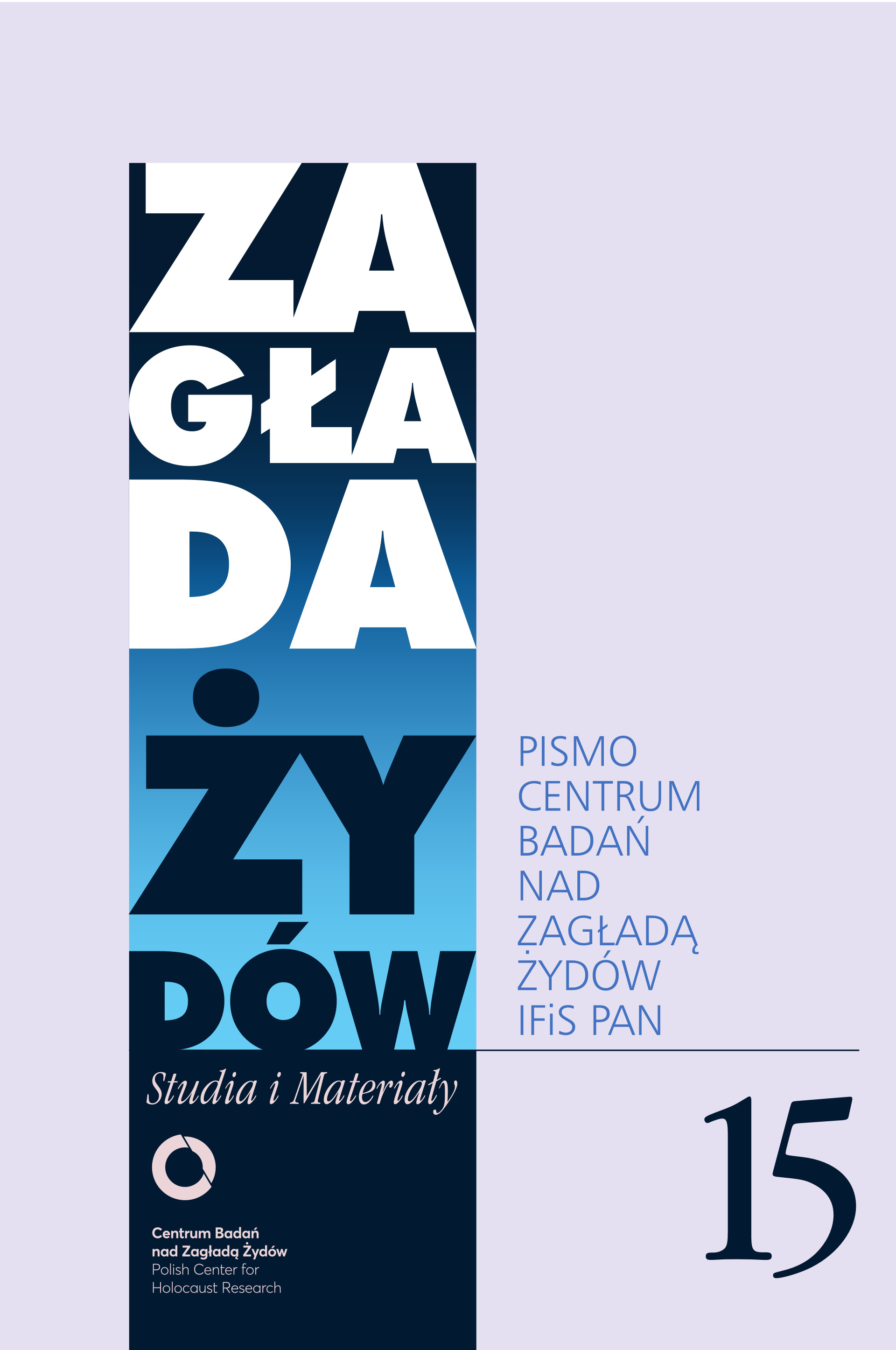Pisarstwo w cieniu śmierci: rękopis rabina Szapiry „Kazania z lat szału” w perspektywie psychologicznej i fenomenologicznej
Writing in the shadow of death: manuscript of Rabbi Szapira's "Sermons from the Years of Rage" from a psychological and phenomenological perspective
Author(s): Daniel ReiserSubject(s): Jewish studies, Phenomenology, Philology
Published by: Stowarzyszenie Centrum Badań nad Zagładą Żydów & IFiS PAN
Keywords: Rabbi Kalonymus Kalman Shapira; sermons; the Warsaw ghetto; terror management theory; philosophy of despair;
Summary/Abstract: Philological examination of the manuscript “sermons from the years of rage,” shows that the sermons were produced layer by layer, one proof succeeding another. Initial proofing appears in the body of the manuscript text; words are deleted by being crossed out, and added words and sentences are placed atop existing or deleted words. Further proofing is done by adding arrows to indicate supplemental text in the margins of the page. The graphic layout of the manuscript, in addition to the content, points to an exceptional psychological phenomenon. Many comments were written on the margins of the manuscript at the end of 1942, when it was already clear to the author that his chances of survival were diminishing, and that Polish Jewry would be annihilated. In such a situation, making changes in text, layer over layer, and often minor changes (male-female, singular-plural, etc.), all in parallel to the bitter reality outside – is an extraordinary human phenomenon. A person knows he is going to die, he has already lost his entire family, and what does he do? Corrections and editing his sermons! Moreover, this is done while there is no certainty that the sermons will be found in the future and that they will ever be published. Such a recording is an evidence of life with two extremes – on the one hand, death that destroys everything, and on the other hand, a literary creation – a new life. This paper examines Rabbi Shapira’s Ghetto writings in light of psychological and phenomenological models developed by Ernest Becker, Viktor Frankl, Lev Shestov and more, putting Rabbi Shapira’s scholarship in a universal human and not just Jewish context.
Journal: Zagłada Żydów. Studia i Materiały
- Issue Year: 2019
- Issue No: 15
- Page Range: 62-90
- Page Count: 29
- Language: Polish

